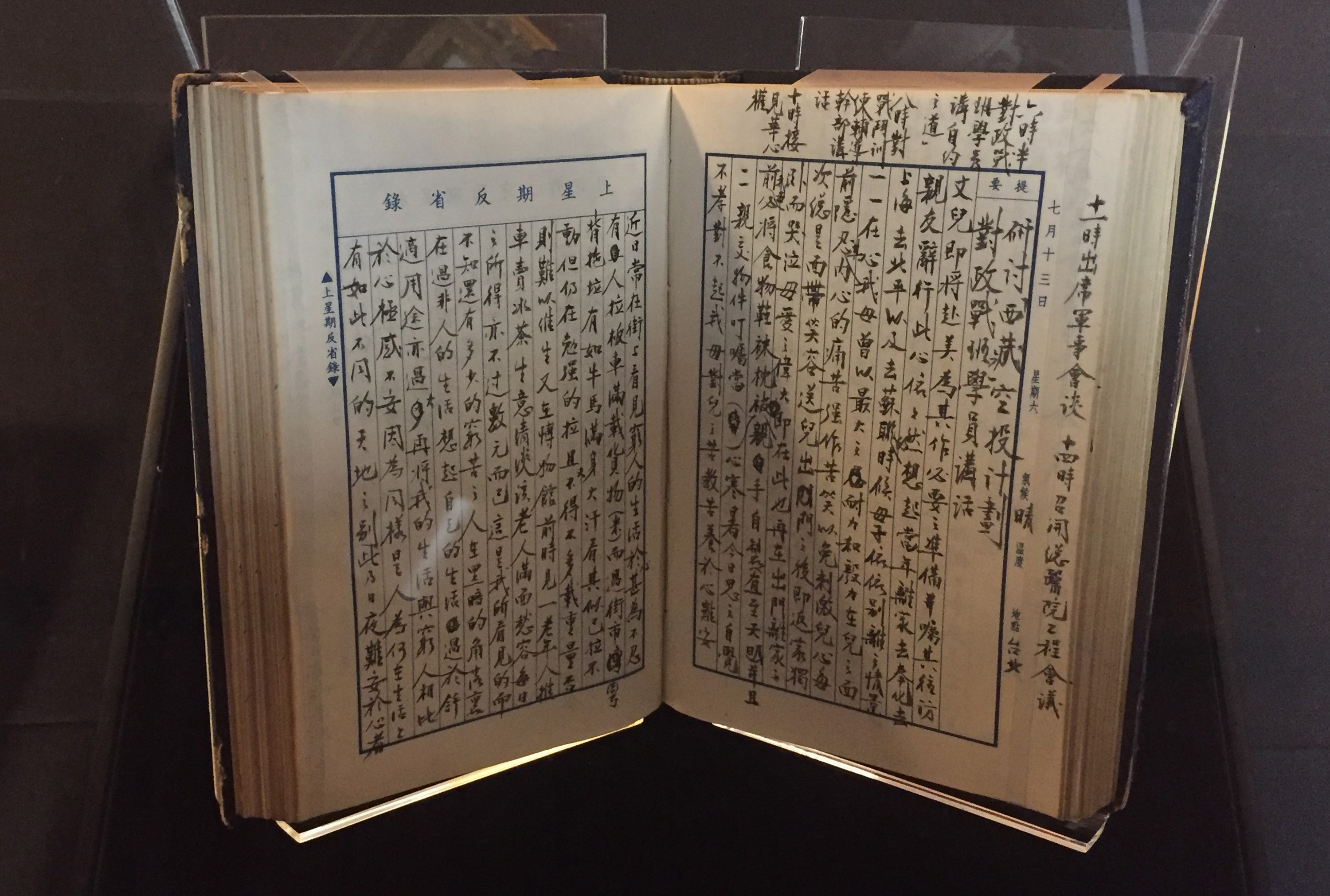For nearly 18 years, 51 boxes of documents from former Taiwanese Presidents Chiang Kai-shek and Chiang Ching-kuo have been stashed at Stanford University. The documents include diary entries revealing personal and diplomatic insights into some of the most notable global political events of the last century.
But the question of who owns the historically valuable musings has been at the center of a decadelong legal battle involving the Taiwanese government, Chiang family members and the Hoover Institution at Stanford University.
Chiang Kai-shek reunified mainland China under a Nationalist Party government in 1925 after the fall of imperial rule and led the country through World War II.
He and communist leader Mao Zedong fought a costly civil war from 1927 to 1949, with Mao’s forces eventually emerging victorious. Chiang Kai-shek fled to Taiwan after the defeat and established a Nationalist-led government there. He presided over the island for another 26 years. His son Chiang Ching-kuo succeeded him as Taiwan’s president from 1978 to 1988.
The files at Stanford contain the personal diaries of Chiang Kai-shek from 1917 to 1972 and Chiang Ching-kuo from 1937 to 1979, as well as various presidential speeches, diplomatic correspondence and political files throughout their reigns.
The documents provide source material about significant foreign affairs, including the battle for Chinese and Taiwanese representation at the United Nations in 1971, and reveal rare geopolitical insights, such as in Chiang Kai-shek’s letters with U.S. Presidents John F. Kennedy and Richard Nixon, according to Hoover Institution research fellow and curator of the Modern China and Taiwan collection, Hsiao-ting Lin.
“These archival materials provide very rich firsthand information about the secrets of top leaders––what they thought about how countries should move forward,” Lin said.
San Jose’s U.S. District Court finally resolved the dispute on July 11, after 10 years of legal wrangling involving 15 individual Chiang family members and an official arm of the Taiwanese government.
Following a string of court rulings and settlements, ownership of the documents was awarded to Academia Historica, Taiwan’s official archive for presidential records and artifacts. Once received, they will publish the diaries and make other “relevant historical documents” available for public viewing, Academia Historica told The Standard.
“We are delighted to learn that the diaries will be returning to Taiwan,” the Taipei Economic and Cultural Office in San Francisco told The Standard in a statement. “We firmly believe that the diaries’ accessibility to the public will greatly contribute to a deeper understanding of the history” of Taiwan.
‘The Most Requested Collection’
The documents were loaned to the Hoover Institution in 2005 by Chiang Fang Chi-yi, the daughter-in-law of Chiang Ching-kuo, who authorized the think tank to provide copies of the diaries to interested scholars. She and six other Chiang family members later signed agreements to pass on the ownership of the papers to Academia Historica.
“These archives provide unique insight into a critically important period in modern Chinese history and have become the most requested collection [in our archives],” the Hoover Institution said in a statement.
Rightful ownership of the documents was called into question when Chiang Yo-mei––the granddaughter of Chiang Ching-kuo––argued the diaries should be kept within the family and not given to Academia Historica.
Due to these differing claims of ownership, Stanford, which maintains it never owned the files, initiated a civil suit in September 2013 against all of the documents’ claimants.
A separate legal case on the same matter was filed in Taiwan by Academia Historica in November 2015, citing Taiwanese law regarding presidential materials.
In 2020, Taiwanese courts determined Academia Historica was the rightful owner of all presidential-related documents, including the diaries of both Taiwanese presidents while they were in office, while all other files were awarded to the family members. The decision was upheld on appeal in 2022, and U.S. courts recognized Taiwan’s decision.
The family members who had not already entered agreements with Academia Historica then settled with the institution to transfer ownership of the remaining personal documents. Chiang Yo-mei was the last of the family to enter an agreement in May 2023.
After 10 years of legal twists and turns, the case was ultimately resolved and closed in San Jose when the final defendant, who had failed to appear in court for years, had his claim extinguished.
Although the original documents will be returned to Taiwan, Stanford will continue to make copies of the papers available for scholars at the Hoover Institution.
Correction: Previous photo captions in this article incorrectly attributed the diaries pictured. Both images of the diary pages are from the Chiang Ching-kuo diaries, not the Chiang Kai-shek diaries.
